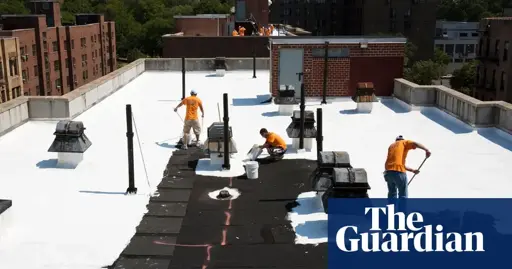- cross-posted to:
- climate@slrpnk.net
- cross-posted to:
- climate@slrpnk.net
The Tennessee representative Rusty Grills says the lobbyist proposed a simple idea: repeal the state’s requirement for reflective roofs on many commercial buildings.
In late March, Grills and his fellow lawmakers voted to eliminate the rule, scrapping a measure meant to save energy, lower temperatures and protect Tennesseans from extreme heat.
It was another win for a well-organized lobbying campaign led by manufacturers of dark roofing materials.
Industry representatives called the rollback in Tennessee a needed correction as more of the state moved into a hotter climate zone, expanding the reach of the state’s cool-roof rule. Critics called it dangerous and “deceptive”.



I work in the chemical industry and the answer is black platics and coatings can be made way cheaper than light ones because they don’t have to be as pure and can be made from lower quality feedstocks and such. Light or clear plastics must be of a higher purity because impurities will usually show up as colored specks that look ugly. For an application like this, impurities aren’t a big deal and won’t really be hazardous, so it’s a win win since it’s cheaper for everyone. It would be a waste to make dark coatings from the same base as light coatings in an application like this because you’d need to remove colored impurities only to just add in a dark pigment anyway. If you don’t offer the lighter colored coatings or white coatings, you can manufacture your dark coatings cheaper by not having production lines with the extra purification and cleaning steps that would be required to offer those. That’s why they only sell dark materials.